Serving 480 students in grades 9-12, Harpeth High School ranks in the top 50% of all schools in Tennessee for overall test scores (math proficiency is bottom 50%, and reading proficiency is bottom 50%).
The percentage of students achieving proficiency in math is 17% (which is lower than the Tennessee state average of 31%). The percentage of students achieving proficiency in reading/language arts is 48% (which is higher than the Tennessee state average of 37%).
The student:teacher ratio of 18:1 is higher than the Tennessee state level of 15:1.
Minority enrollment is 11% of the student body (majority Hispanic), which is lower than the Tennessee state average of 43% (majority Black).
Quick Stats (2025)
- Grades: 9-12
- Enrollment: 480 students
- Student:Teacher Ratio: 18:1
- Minority Enrollment: 11%
- Graduation Rate: 90-94% (Top 50% in TN)
- Overall Testing Rank: Top 50%
- Math Proficiency: 17% (Btm 50%)
- Reading Proficiency: 48% (Top 20%)
- Science Proficiency: 55-59% (Top 20%)
- Source: National Center for Education Statistics (NCES), TN Dept. of Education
Top Rankings
Harpeth High School ranks among the top 20% of public schools in Tennessee for:
Category
Attribute
Most improved public schools
Reading/Language Arts Proficiency
Science Proficiency
School Overview
Harpeth High School's student population of 480 students has declined by 10% over five school years.
The teacher population of 26 teachers has declined by 13% over five school years.
Grades Offered
Grades 9-12
Total Students
480 students
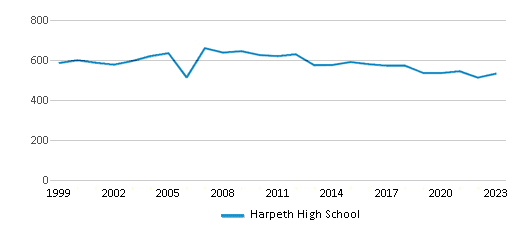
Gender %
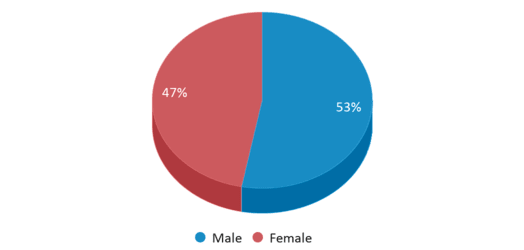
Total Classroom Teachers
26 teachers
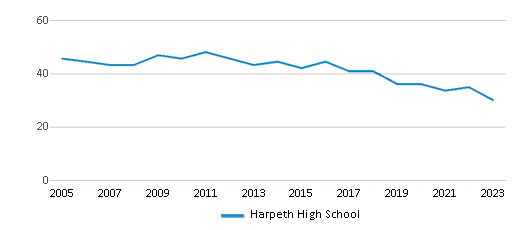
Students by Grade
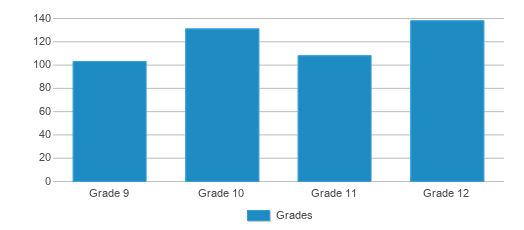
School Rankings
Harpeth High School ranks within the top 50% of all 1,761 schools in Tennessee (based off of combined math and reading proficiency testing data).
The diversity score of Harpeth High School is 0.20, which is less than the diversity score at state average of 0.61. The school's diversity has stayed relatively flat over five school years.
Overall Testing Rank
#776 out of 1761 schools
(Top 50%)
(Top 50%)
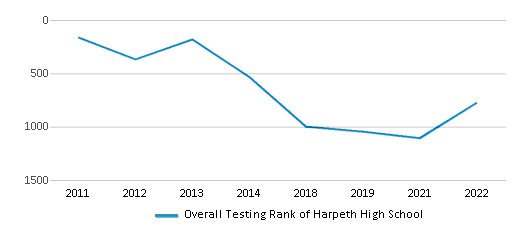
Math Test Scores (% Proficient)
17%
31%
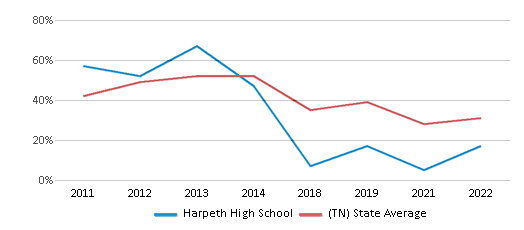
Reading/Language Arts Test Scores (% Proficient)
48%
37%
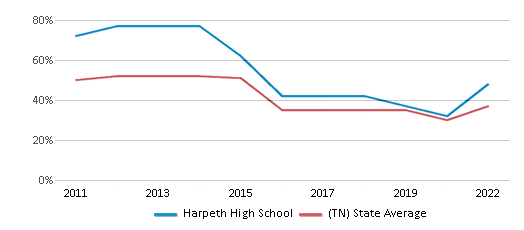
Science Test Scores (% Proficient)
55-59%
40%
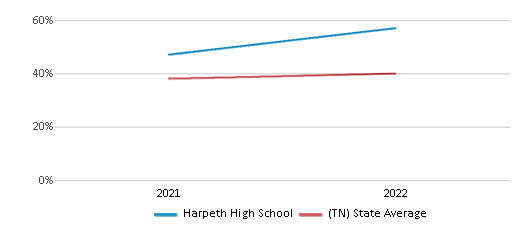
Student : Teacher Ratio
18:1
15:1
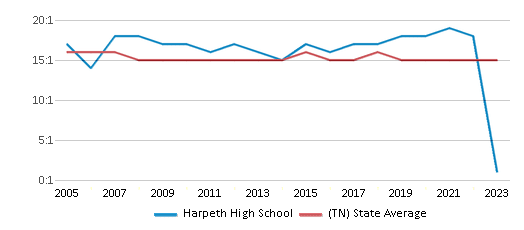
American Indian
n/a
n/a
Asian
n/a
2%
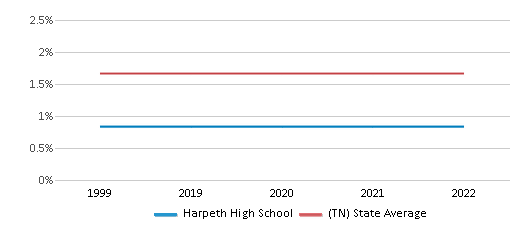
Hispanic
7%
15%
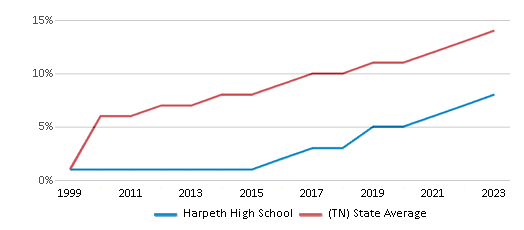
Black
2%
21%
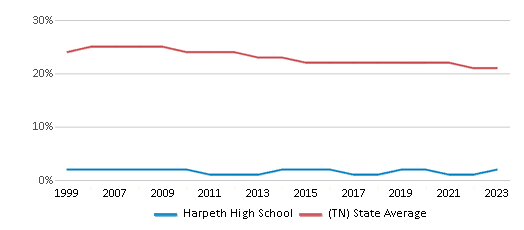
White
89%
57%
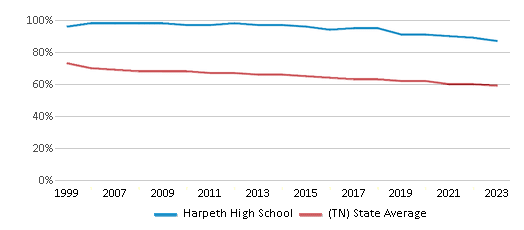
Hawaiian
n/a
n/a
Two or more races
2%
5%
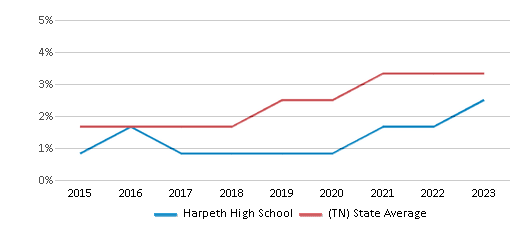
All Ethnic Groups
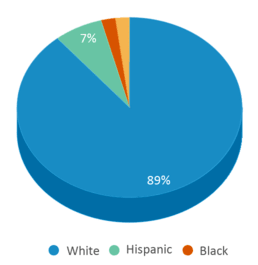
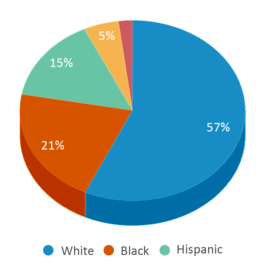
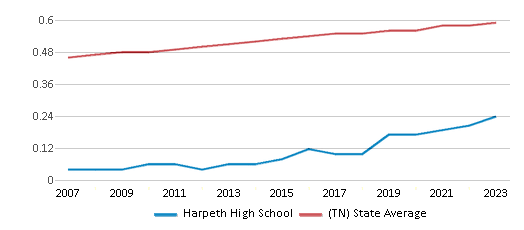
Graduation Rate
90-94%
90%
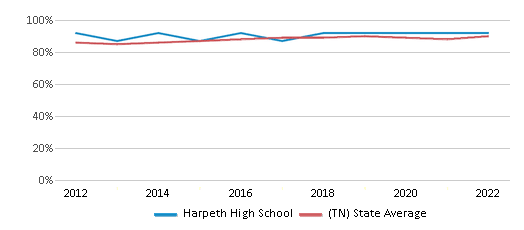
Participates in the National School Lunch Program (NSLP)
Yes
Eligible for Free Lunch
33%
45%
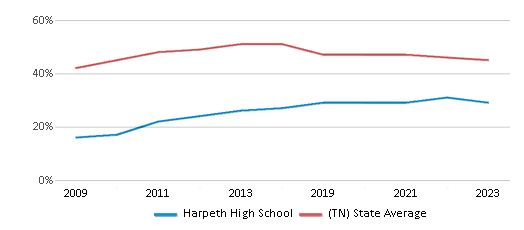
Eligible for Reduced Lunch
6%
6%
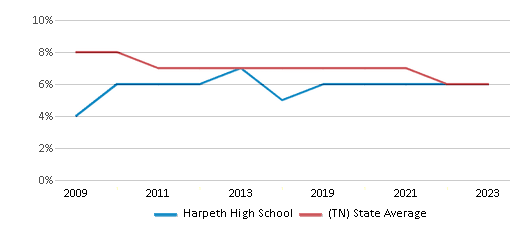
School Statewide Testing
School District Name
Source: National Center for Education Statistics (NCES), TN Dept. of Education
Profile last updated: 02/09/2025
Frequently Asked Questions
What is Harpeth High School's ranking?
Harpeth High School is ranked #776 out of 1,761 schools, which ranks it among the top 50% of public schools in Tennessee.
What schools are Harpeth High School often compared to?
Harpeth High Schoolis often viewed alongside schools like Cheatham Co Central by visitors of our site.
What percent of students have achieved state testing proficiency in math and reading?
17% of students have achieved math proficiency (compared to the 31% TN state average), while 48% of students have achieved reading proficiency (compared to the 37% TN state average).
What is the graduation rate of Harpeth High School?
The graduation rate of Harpeth High School is 90-94%, which is higher than the Tennessee state average of 90%.
How many students attend Harpeth High School?
480 students attend Harpeth High School.
What is the racial composition of the student body?
89% of Harpeth High School students are White, 7% of students are Hispanic, 2% of students are Black, and 2% of students are Two or more races.
What is the student:teacher ratio of Harpeth High School?
Harpeth High School has a student ration of 18:1, which is higher than the Tennessee state average of 15:1.
What grades does Harpeth High School offer ?
Harpeth High School offers enrollment in grades 9-12
What school district is Harpeth High School part of?
Harpeth High School is part of Cheatham County School District.
School Reviews
5 5/31/2010
I attended your graduation services Friday night. I want to thank you for giving me a great experience by saying the Pledge of Allegiance and to the Valedictorian who gave the rousing address that brought the crowd to its feet, I say, GO GIRL. I felt so GOOD when the program was over. It was so student oriented that it brought tears to these old eyes. My granddaughter graduated last night and now I know why she loves her school so much. You know, it was a lot like MY high school graduation--small--but with not nearly so much talent. To the visiting speaker from the Department of Education, I thank him for keeping it brief and envoking blessings from God. I live in Kentucky and haven't heard that in YEARS except in church. God bless all of you. Maryann Fenner is my grand child and I know God will bless her--she is a fine young lady and you deserve a lot of the credit.
Sincerely, Mary Outland, Murray, KY
Review Harpeth High School. Reviews should be a few sentences in length. Please include any comments on:
- Quality of academic programs, teachers, and facilities
- Availability of music, art, sports and other extracurricular activities
Recent Articles

What Is A Charter School?
Explore the world of charter schools in this comprehensive guide. Learn about their history, how they operate, and the pros and cons of this educational innovation. Discover key facts about charter schools, including admission policies, demographics, and funding, as well as what to look for when considering a charter school for your child.

10 Reasons Why High School Sports Benefit Students
Discover the 10 compelling reasons why high school sports are beneficial for students. This comprehensive article explores how athletics enhance academic performance, foster personal growth, and develop crucial life skills. From improved fitness and time management to leadership development and community representation, learn why participating in high school sports can be a game-changer for students' overall success and well-being.

February 05, 2025
Understanding the U.S. Department of Education: Structure, Impact, and EvolutionWe explore how the Department of Education shapes American education, from its cabinet-level leadership to its impact on millions of students, written for general audiences seeking clarity on this vital institution.









